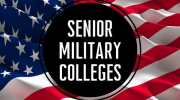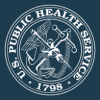Hi yall,
I am a rising high school sophomore as of now, and I'm seriously considering the Air Force Academy (or any of the other service academies) as my main college option. I've been looking around the internet and have found some good information, and I've been compiling all helpful resources and taking notes, but some aspects of the application process still confuse me.
I understand that the application window opens in March of my junior year, so 2024 for me. I also understand nomination from my region's member of congress, a senator of my state, or the vice president is also necessary.
Here's my full understanding of the application process as of now. I need to:
- Complete the pre-candidate questionnaire.
-----------------------------------------------------------------------------------------------------
- Send transcripts and letters of recommendation from teachers,
- pass the candidate fitness assessment,
- complete extracurricular activities record,
- answer written questions,
- pass personal record check,
- complete interview w/ admissions liaison officer,
- pass the medical exam,
- and receive a nomination.
My main questions are about the nominations. I understand that the nomination is required as a part of the application after becoming a candidate, but when should I apply for a nomination? I'm guessing that I need to be an official candidate before I apply for a nomination? Also, a nomination does not automatically mean acceptance and is only required to be considered for an appointment, yes?
Another side-question I had was about improving my "resume" of extracurriculars. What are some ways I can stand out from the rest? I am involved with the cross country team(not varsity yet) and the band program at my school, and I'm hoping to add track & field to the mix this upcoming year. I am not an extraordinary athlete, by any means, nor am I some kind of genius, just... very decent at everything. One thing I've read is that I should become involved with clubs and volunteering, so I plan on doing that as well.
I think I have a decent understanding of the entire process, but I'm sure there are things I may be missing.
I know this all may seem very naive to some of yall out there who have already gone through this process, but I'd really appreciate any helpful input/information/resources on any part of getting into the academy.
Thank youuu
Yehdo
I am a rising high school sophomore as of now, and I'm seriously considering the Air Force Academy (or any of the other service academies) as my main college option. I've been looking around the internet and have found some good information, and I've been compiling all helpful resources and taking notes, but some aspects of the application process still confuse me.
I understand that the application window opens in March of my junior year, so 2024 for me. I also understand nomination from my region's member of congress, a senator of my state, or the vice president is also necessary.
Here's my full understanding of the application process as of now. I need to:
- Complete the pre-candidate questionnaire.
-----------------------------------------------------------------------------------------------------
- Send transcripts and letters of recommendation from teachers,
- pass the candidate fitness assessment,
- complete extracurricular activities record,
- answer written questions,
- pass personal record check,
- complete interview w/ admissions liaison officer,
- pass the medical exam,
- and receive a nomination.
My main questions are about the nominations. I understand that the nomination is required as a part of the application after becoming a candidate, but when should I apply for a nomination? I'm guessing that I need to be an official candidate before I apply for a nomination? Also, a nomination does not automatically mean acceptance and is only required to be considered for an appointment, yes?
Another side-question I had was about improving my "resume" of extracurriculars. What are some ways I can stand out from the rest? I am involved with the cross country team(not varsity yet) and the band program at my school, and I'm hoping to add track & field to the mix this upcoming year. I am not an extraordinary athlete, by any means, nor am I some kind of genius, just... very decent at everything. One thing I've read is that I should become involved with clubs and volunteering, so I plan on doing that as well.
I think I have a decent understanding of the entire process, but I'm sure there are things I may be missing.
I know this all may seem very naive to some of yall out there who have already gone through this process, but I'd really appreciate any helpful input/information/resources on any part of getting into the academy.
Thank youuu
Yehdo


